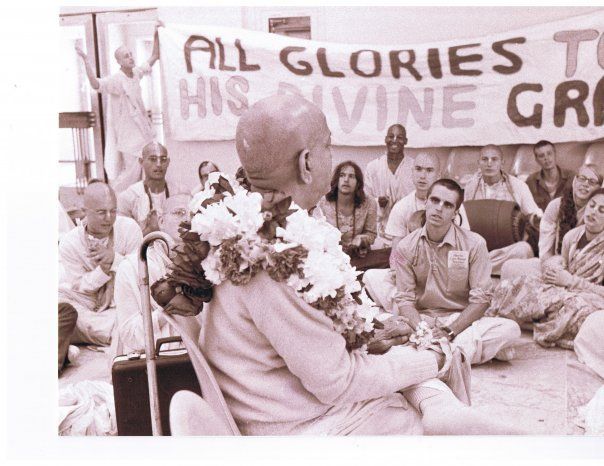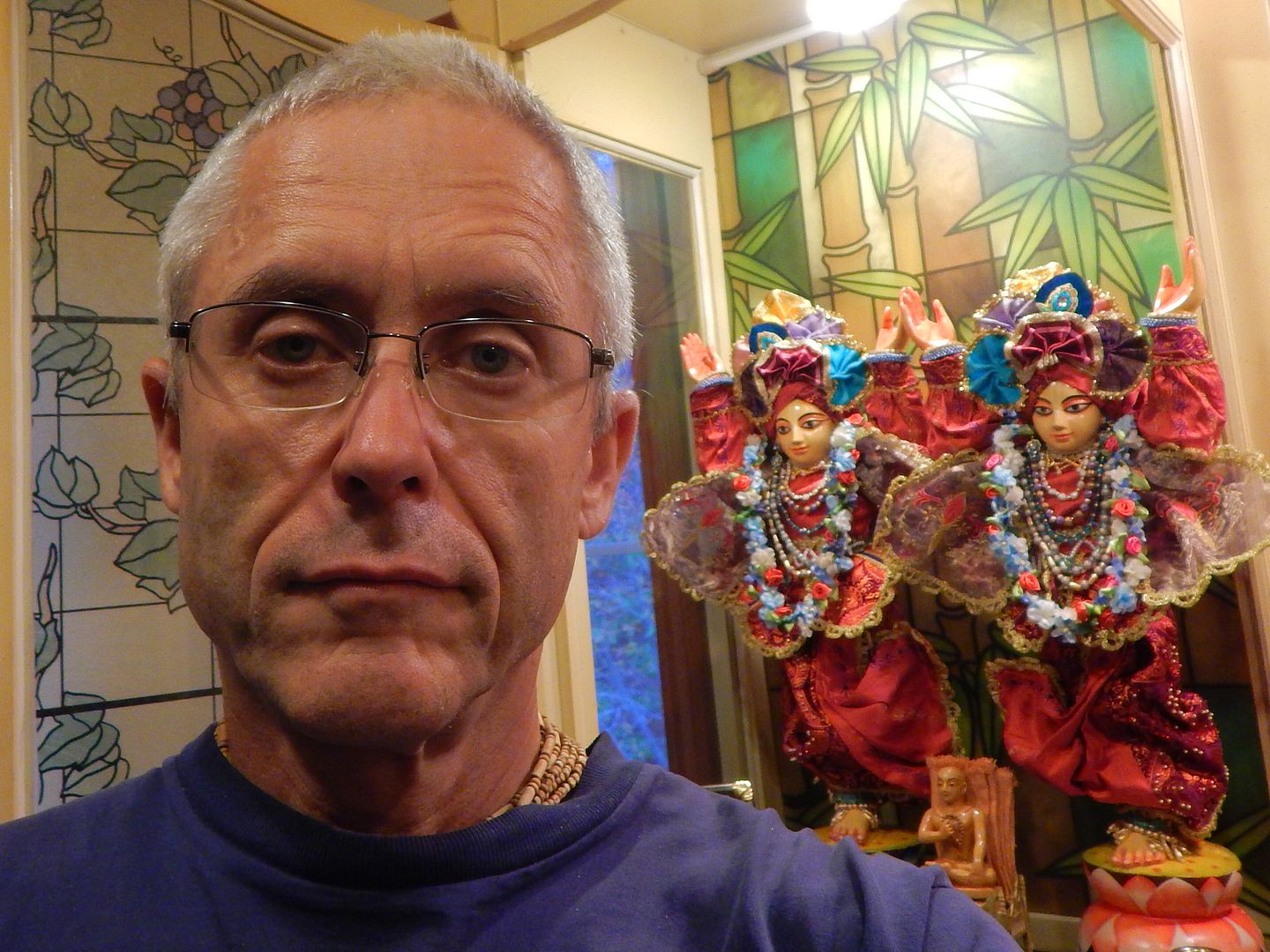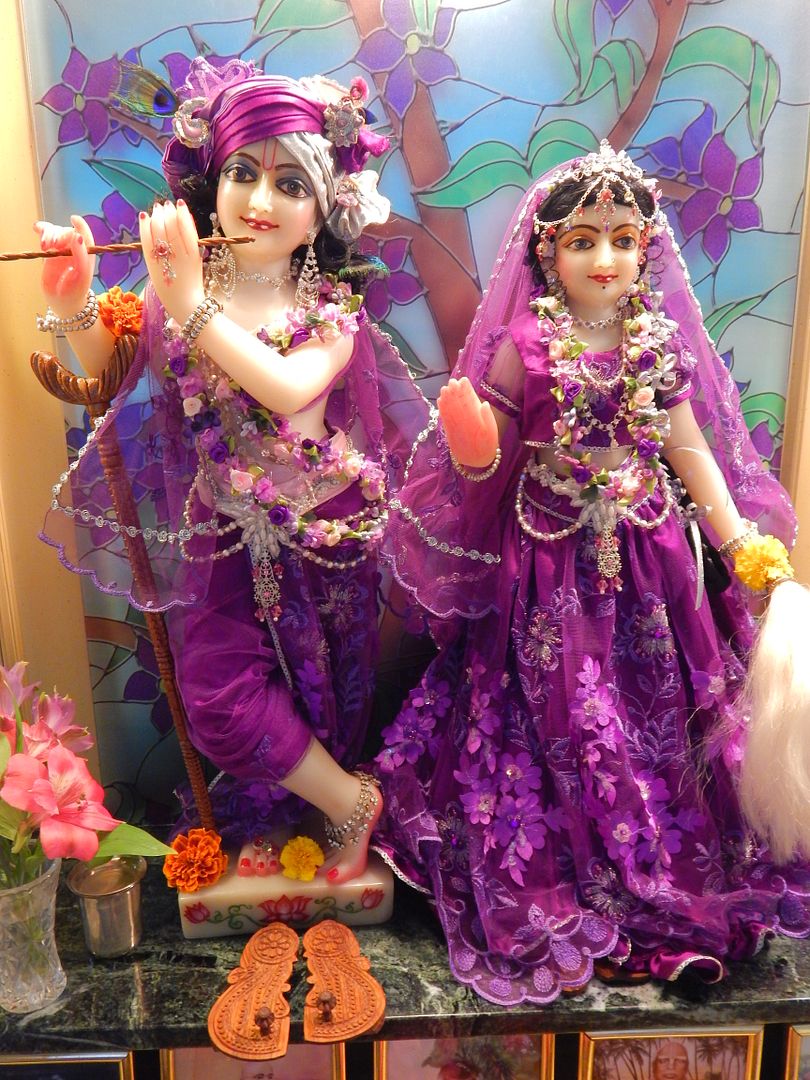WAITING FOR ETERNITY WE FORGET TO LIVE TODAY: When I was a new devotee I often reflected that within a few years that special flower airplane would take me back to Godhead, and so I had no worries. Ten years later I realized my thinking was wishful and I had to deal with living in the world. Gaudiya Vaishnavism or living with a consciousness or remembrance of Krishna isn’t life denying but life affirming.
For those who came to this path of bhakti in great distress, having bottomed out materially, this conclusion takes a while to embrace, if it is at all. In such a condition we relish hearing how bad the material world which confirms that we aren’t crazy for experiencing our distress, frustration, or depression in what appears to be a pointless, miserable world.
Many classes emphasized this negative aspect of life while extolling the spiritual world and a life full of meaning and devotion there, and that we needed to save the world as our first duty. Prabhupada shared his sense of urgency to help others, knowing he had only a short time to set up his mission. As motivating and helpful as this was, the downside was that many of us denied our physical needs to an extreme
Perhaps we needed that at first, yet this view and practice was not sustainable, and some of us failed to live and be present to our needs and inner guidance. Everyone has to come to terms with their physical necessities and spiritual practice and live their lives accordingly, and it isn’t always easy, especially without mature guidance.
Those who haven't, as Prabhupada taught us, “made the best of a bad bargain,” or more, who have found the beauty in the world’s design, and our life of devotion in response by seeing Krishna’s hand in all the details of our lives, are often disconnected and unhappy, and, in effect, waiting around for the next life without really living.

Following in the footsteps of great souls, I have referred to the miseries of material existence elsewhere as the negative impetus for bhakti. At some point, after we felt relief from our suffering, some of us asked, “and then what?” In other words, just the emphasis on the negative wasn’t enough to get us out of bed in the morning. We had to have a more positive orientation or impetus for bhakti to keep us moving forward, and being relieved of our distress, we discovered we had to address our personal necessities and calling in life.
Some left this path all together to pursue that direction because they didn’t have support from wise, experienced, elders who had already made the transition from monk to householder with family and careers. Or persons like me struggled for years to create balance and an interface with the world in terms of occupation, home, and family.
At present, I feel the urgent necessity to share what I have learned to help devotees find what is required as material support, and to increase their spiritual practice and necessity for progressing through the stages of bhakti.

Facing my death, either today, tomorrow, or sooner rather than later, has been life transforming for me, as I have already shared. Now my attempt is to help you have same that awareness—die before dying—even if you are young, strong, and on top of the world.
When I was with my mom in hospice, knowing that she was in her last days, I became very introspective, questioning everything. We felt closer than ever before, and realized the past didn’t matter, or our considerable differences, even hostility toward one another, had no meaning now, and so we did our best to reconcile our relationship.
In my language, we were cutting the karmic cords that bind people together through materially possessive love or hate. We were one as human beings who must die. The fact that material life is temporary isn’t an accident, but is purposeful, and it is up to us to find that purpose. Our apparent mortality and the miseries of life beg the question, “why?”
Their purpose isn’t to give us pain, but to get our attention by helping us search the solution to our predicament. Some people just write it off as just the way it is seeing this life as all and all, but those with a spiritual bend, will find God, and attaining his grace and service, as the answer to the death and pain “problem.”
For devotees, this solution involves living our life to the fullest and using our nature and goals as a devotional offering, and looking to see everything as the grace of Krishna meant for our good. In this way we develop reverence for all things and feel grateful for each day. As someone said about their cancer, which I’m adopting, “cancer concentrates the mind wonderfully,” as to what is most essential in life, and for the soul’s purpose.
HEALING FROM OUR PAST TO LET OUR LIGHT SHINE: Sometimes in our pain, hurt, betrayal, abuse, or debilitating disease, we may feel like damaged goods, that we are broken and irreparable, with no value and nothing to contribute to anyone, not even ourselves. However, we can discover the truth that it is possible to heal from any great suffering we have endured--or in the case of a disease that we can't heal from, to make peace with our upcoming death. If we are able to reclaim and uncover our spirit and see our inherent value as souls and human beings, our great trails can be transformed into our great strength, and we can shine our light, live with grace and gratitude, and both acknowledge our gits, and share them with the world.


Comments